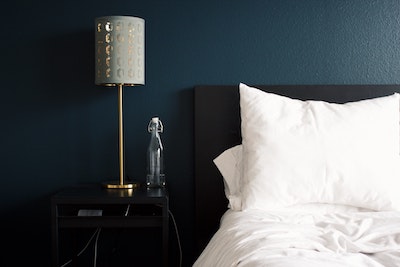A+ Sleep Health

A Good Night’s Rest
Substance use disorders may cause sleep problems but if you’ve ever struggled with insomnia, it can feel like a compelling reason to drink. Substance use challenges and sleep problems have an interdependent relationship. Not to mention, insomnia can be an independent risk factor for drinking and using. Now more than ever, sleep addiction researchers are looking at sleep as an indicator for early intervention and an effective treatment tool.
So, how exactly does substance use affect sleep?
Substance directly affects the sleep-regulatory systems in the brain, meaning it takes more time to fall asleep, which is referred to as latency. Substance use, withdrawal, cravings, and potential relapse also impact the duration of sleep and sleep quality. Waking up from a poor night’s sleep doesn’t just make for a hard start to the day or an afternoon slump, it affects central brain function too. It alters our ability to regulate mood, consolidate memories, learn new skills, and self-regulate, all essential components of recovery.

If you’re struggling from sleep challenges, you’re not alone. 33% of the population suffers from sleep struggles.
What can you do about it?
Sleep is habitual, which means the best place to start is with routine.
- Set boundaries. Start with your bedroom and make it a no-alcohol/drugs zone so that you only associate it with sleep.
- Create a restful sleep environment. You might remove technological devices from the bedroom, tidy up for five minutes while listening to relaxing music, or read a few pages of a great book.
- The temperature of the bedroom is ideally 18 degrees Celsius, so crack the windows.
- It’s also important to leave the bedroom if you can’t sleep; sleep restriction aligns with this thinking and can get you back into a healthy sleep cycle. Do a relaxing activity until you’re on track to hit the pillow again.

Your routine doesn’t just happen in the moments before bed. In fact, from the time you wake up in the morning, you are setting yourself up for a good night’s rest. Moderate exercise, caffeine, and nutrition are all essential factors in getting your Z’s. If your mind feels busy or racy, you might try writing down your worries. When a craving comes on strong in the middle of the day and it takes all your energy to fight it, give yourself a moment of self-compassion, take some deep breaths, do a short guided meditation, or stretch on the floor to centre yourself. Remember, just like the change journey, good sleep is about taking care of yourself, making healthy choices, and moderation.
Access the ALAViDA TRAiL app.